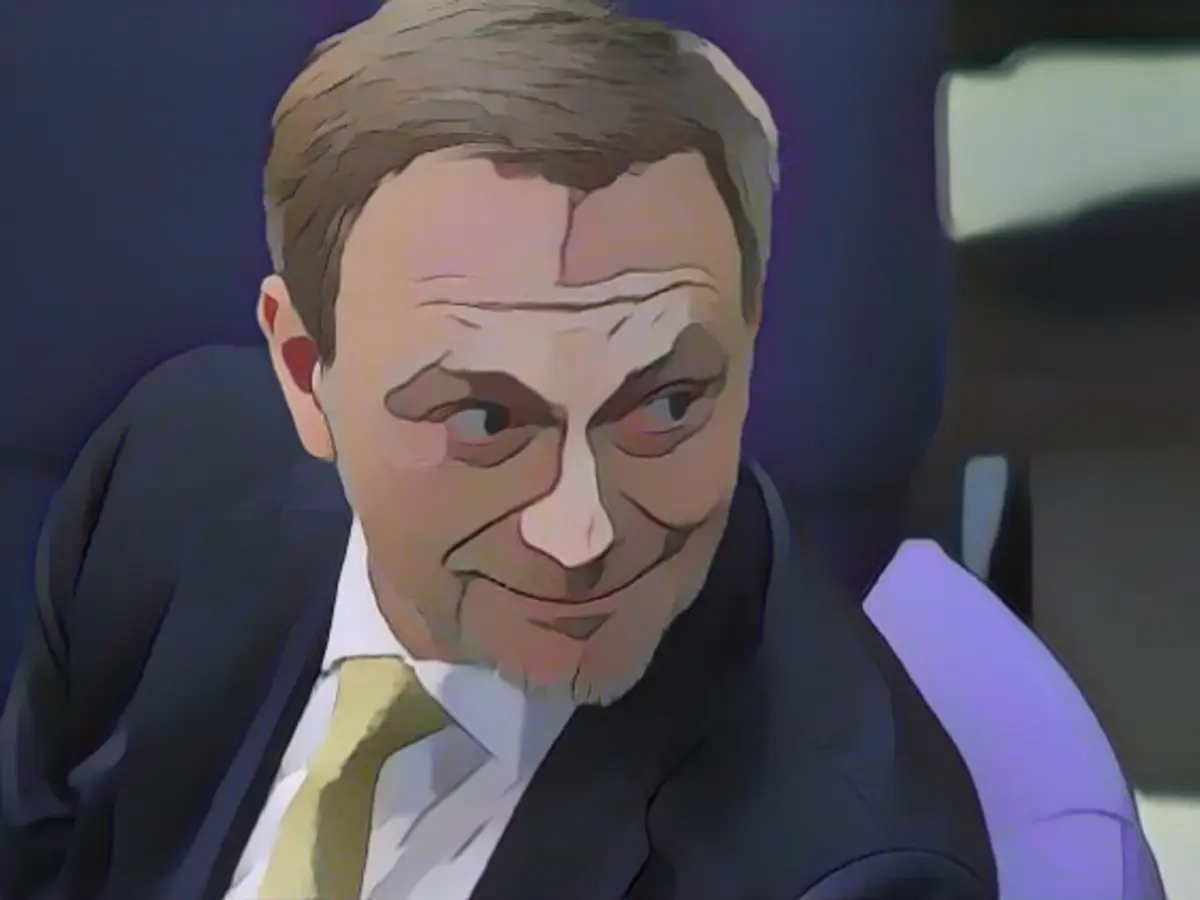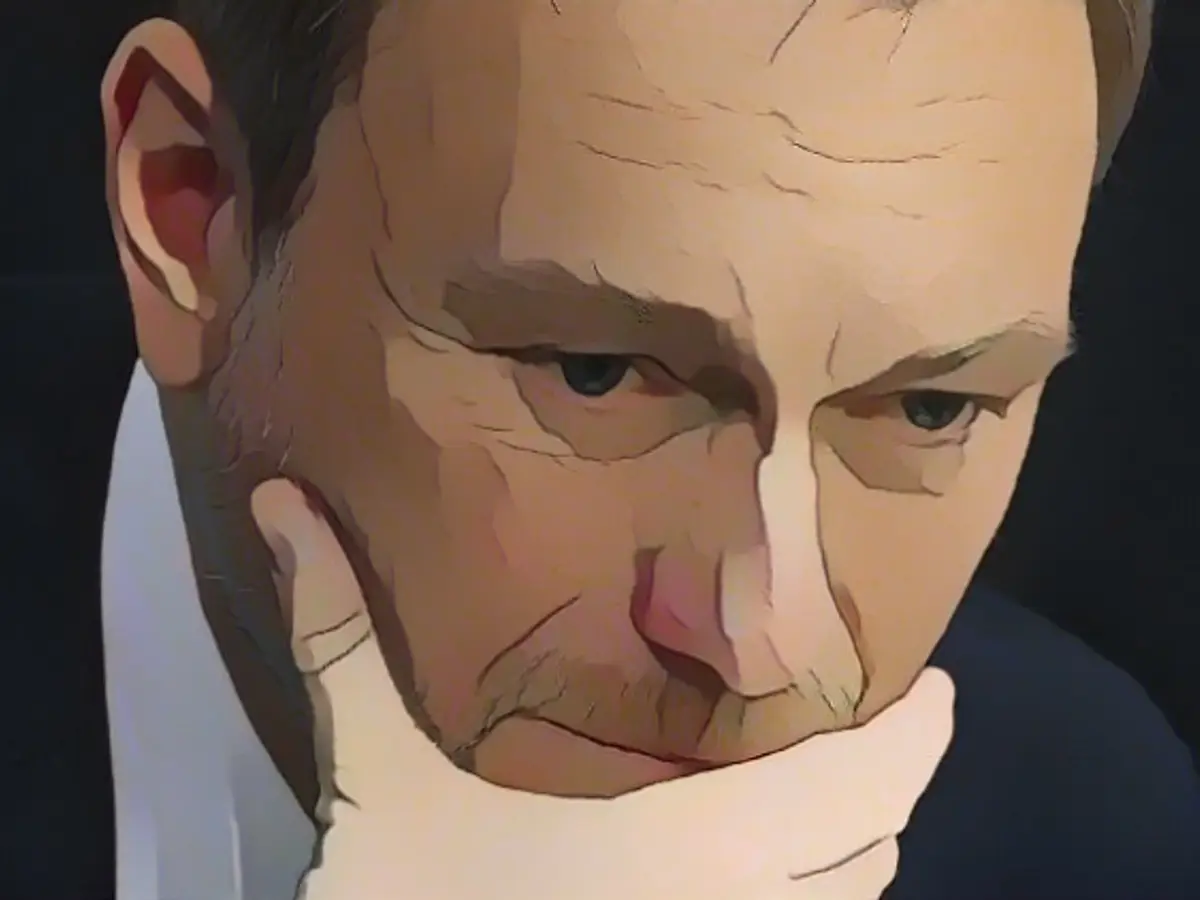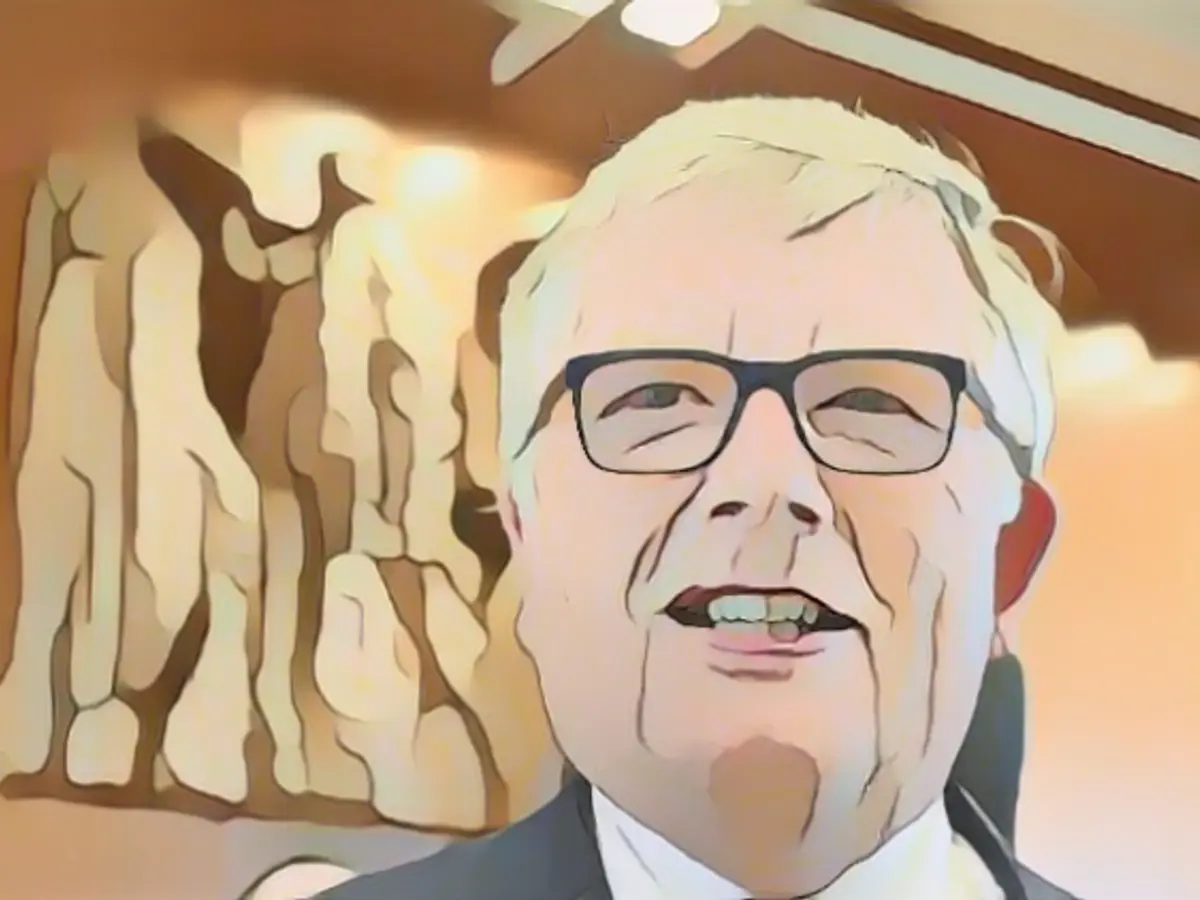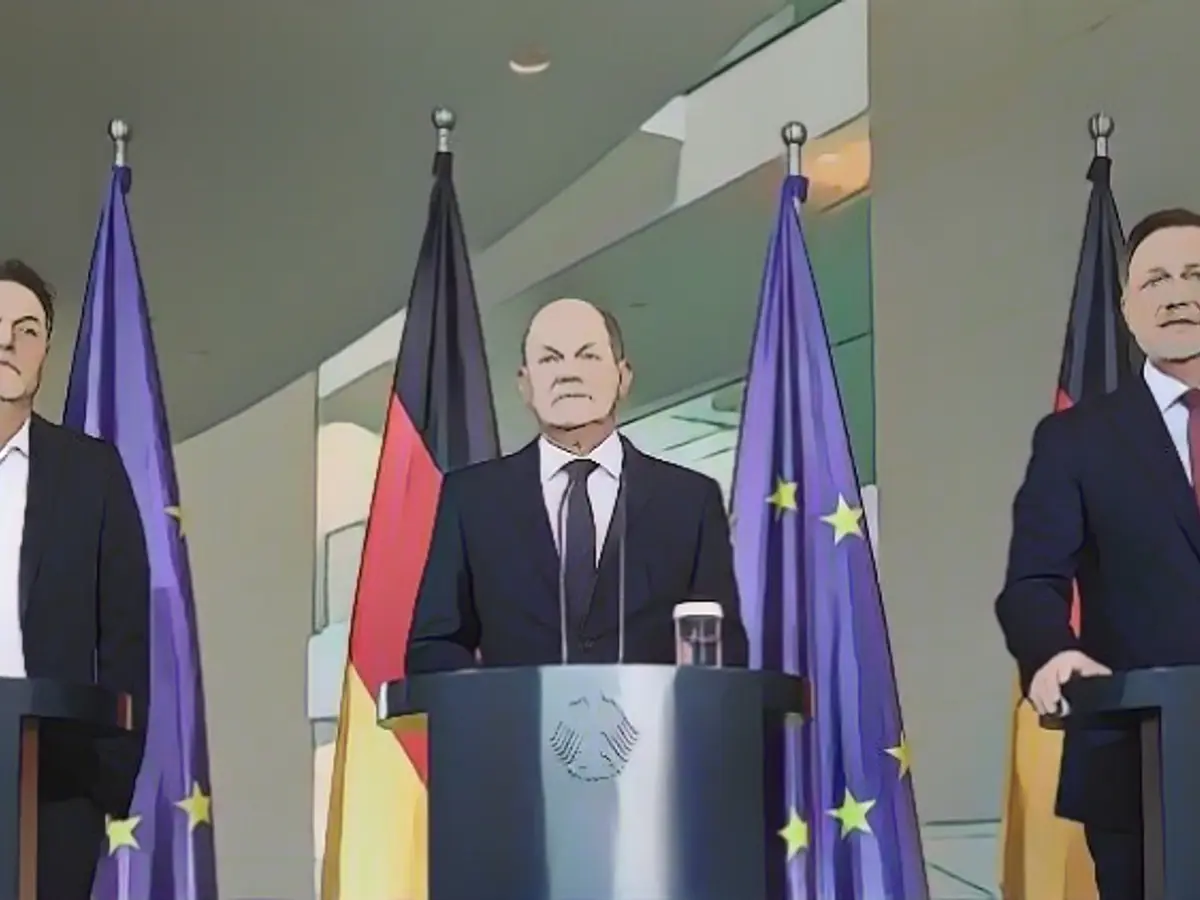Is the debt brake's countdown beginning?
The Federal Constitutional Court is provoking political divides within the traffic light coalition. Prepare for a year of uncertainty.
Christian Lindner can't stand the words "debt ceiling" or "crisis situation," and "suspension" is far from his vocabulary. Last Thursday evening, the Finance Minister declared the debt brake's temporary hiatus in 2023 due to the "current situation," albeit avoiding explicit usage of these terms. He optimalistically concluded by stating his aspiration to "wipe the slate clean." A fresh start may be in sight, but it seems everyone's in store for a clean slate.
The term "suspending the debt brake" brings about a liberating feeling, making it seem like turning off a switch that instantly eliminates budgetary limitations. However, this is merely a linguistic blunder, or at worst a manipulation of public sentiment.
"Only open in times of catastrophe!"
The debt brake is a rigid fiscal boundary set within the constitution, defined in Article 115 of the Basic Law. It arose as a response to the global financial crisis, not as a forgotten relic from a calmer era, as erroneously suggested by the Greens. In practice, the debt brake can't be simply "suspended" without the suspension being stipulated in the same constitution as the brake itself. This has only occurred once – in connection with the "turnaround" funding for the Bundeswehr. The traffic light government, with CDU/CSU backing, resolved to allocate 100 billion to defense, thus exempting the debt brake.
What Lindner is presenting now is something entirely different: a tiny, partially hidden door that materializes within the debt brake. The signage reads in bold letters, "Keep Out" and "Open only in Extreme Emergency Situations that Escape the State's Control." The finance minister is attempting to push the 2023 budget through this door.
Thus, there is no switch, no suspension; only challenges, necessities, and anxious hopes that they will prevail under constitutional law. Since the Federal Constitutional Court would halt the proceedings again if an "emergency situation" is not demonstrated, the debacle from last week may well repeat itself: another budget will risk bursting open.
A time bomb is ticking
Currently, 60 billion from the Climate and Transformation Fund (CTF) is missing due to its repurposing for coronavirus aid. Up to 200 billion more lies in wait, as another fund, the Economic Stabilization Fund (WSF), falls beyond budgetary limitations. What extraordinary emergency justifies this reallocation? Economic gloom, economic instability, or even the Federal Constitutional Court's own ruling?
The Federal Constitutional Court's judgment has not only poppped a budget bubble but also placed another time bomb on the table. The risk lurks in one of the judges' key arguments: they suggested that the more distant an emergency, the less justifiable a government's usage of it to skirt the debt brake. The debt brake itself reflects this hypothesis, with its definition of an emergency "situation" as something temporary, not a perpetual state of crisis.
Unfortunately, the fiscal policies of the traffic light parties exemplify ideological disparity, further illuminated by the Federal Constitutional Court's ruling. The three coalition members harbor different stances – the FDP advocates for a minimalist state, the SPD supports redistribution, and the Greens champion subsidies. Balancing fiscal perks, raising taxes, curtailing social spending, and relinquishing climate subsidies are all arduous tasks.
The trade-off of funds to the tune of billions lies at the root of these conflicting interests – despite economists' recommendations to use emergency corona funds for long-term investments. At this point, the question should have arisen: What connection does this have to the coronavirus crisis?
Now another convincing emergency story must be concocted. Perhaps Lindner will ask Habeck for assistance: after all, Habeck is adept at penning compelling narratives, his performances seldom sharing the stage with others, especially when he conducts his timely appearances sparingly and as pre-recorded broadcasts. On Thursday, Habeck exclaimed, “We Germans have voluntarily tied our own hands and are entering a boxing ring as our opponents rebound with weapons. The debt brake is an artifact of past times when China was merely an extended labor force.”
And what about the grand coalition?
Habeck stares contemptuously in the CDU/CSU's direction on LinkedIn, a fire burning in his gaze: "Could we not now relax the debt brake together with an investment norm?" Despite Habeck's assertion that the CDU/CSU and Friedrich Merz have inflated prices through lawsuits against the Federal Constitutional Court, this accusation was characterized as absurdly petulant by many. Nonetheless, it encapsulated Habeck's frustration: he despises being put in his place.
The CDU/CSU, for its part, is also not currently courting Green partners. Some prefer discussing the possibility of a new grand coalition, a solution that would allow Olaf Scholz to hunt for a job without the intrusive public eye – reducing the likelihood of him displaying further incredulous reactions to the populace's ignorance.
Is the end in sight for the traffic light coalition? Some analysts pinpoint the FDP as the most likely coalition faction to dissolve. A storm of dissent is emerging within the party, high-spirited objections that could prompt the FDP's exit from the coalition. But exiting may not be an option with Lindner primarily responsible for the budget debacle. The situation demands compromise, forcing the parties to the brink of self-annihilation, potentially leading to internal party rebellions in 2024. Meanwhile, Friedrich Merz and the CDU/CSU may benefit from this political instability.
In light of the Federal Constitutional Court's decision, the government must exercise extreme caution when declaring emergency situations in order to circumvent the debt brake. The ruling clearly outlined that any emergency scenario must be short-lived, and a permanent crisis justification would not be sufficient to overlook the debt brake.
Lindner's pronouncement of the debt brake's temporary suspension in 2023 is a delicate tactic, reliant on the cooperation of other parties. Previous examples of bypassing constitutional barriers, such as the approval of special measures by parliaments coupled with the Mandate Fund's allocation, underscore the importance of securing the necessary approvals for navigating such fiscal challenges.








